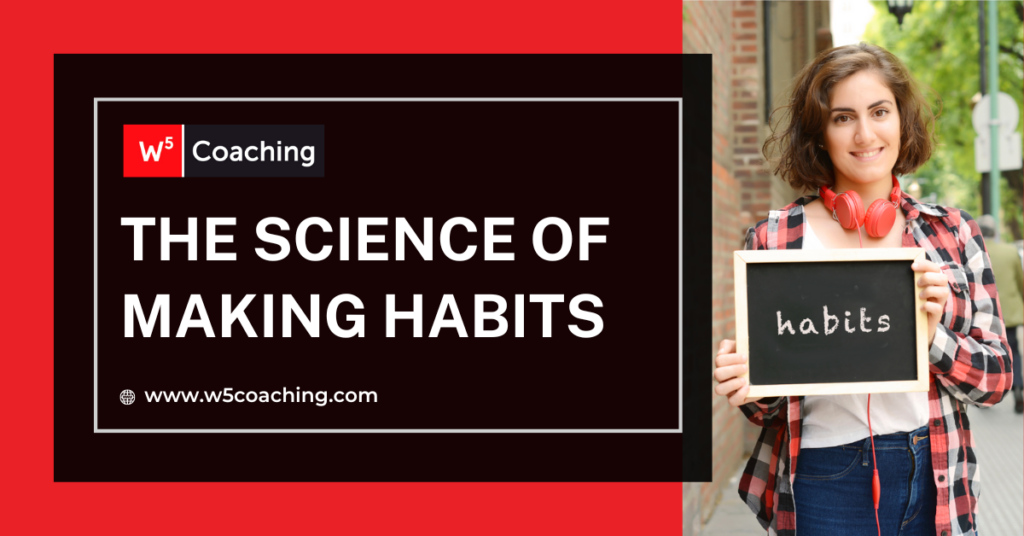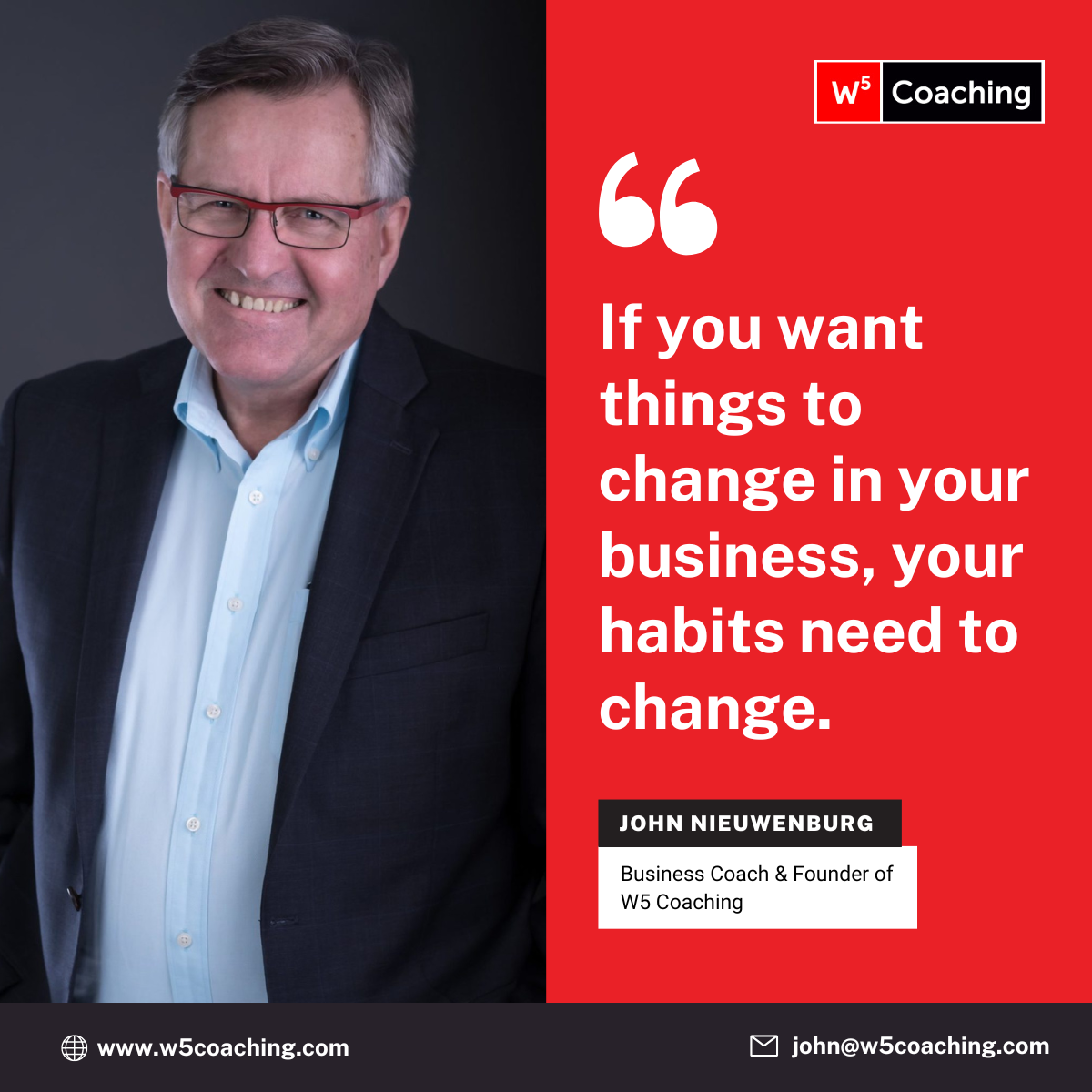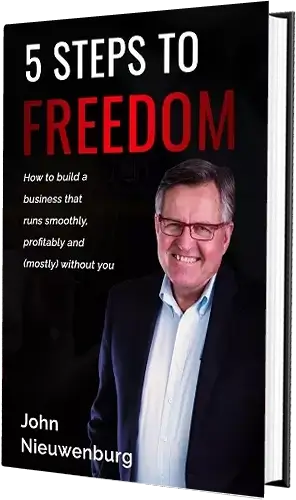How to Create Habits that Drive Business Success

The best way to implement change – in your business and in your personal life – is by developing better habits.
A habit is a repeated behaviour that has become automatic over time.
Once a habit is established, it can be difficult to change or break.
Habits can be both positive and negative, and they can range from simple actions like brushing your teeth to more complex behaviours like procrastination.
Understanding the principles of habit formation can be a powerful tool for driving success, so let’s dive into the science of habit making and discover how we can use it to our advantage as small business owners.
The first observation I’d make is this:
About 50% of everything you do is by habit

Or as Aristotle put it:
“We are what we repeatedly do. Excellence, then, is not an act, but a habit.”
Small businesses are the perfect place for the effects of habit to multiply.
In short, if you want things to change in your business, then your habits have to change.
If you’ve ever committed to a change and then didn’t follow through, the following tips will help!
1. Build habits from the inside out
There are two ways to approach building new habits: outcome-based habits or identity-based habits.
Outcome-based habits start from the outside and work their way in. For example, if someone says “I want to quit smoking,” the outcome is to stop smoking and the habit starts with the declaration.
On the other hand, identity-based habits work from the inside out.
Our identity is anything we say to ourselves about ourselves when no one else is around.
Instead of saying “I want to quit smoking,” someone with an identity-based habit might say “I am a non-smoker.”
If you offer a cigarette to someone who says “No thanks, I’m trying to quit,” and someone who says “No thanks, I am a non-smoker,” which one do you think is more likely to succeed in quitting?
Clearly, it is the person who identifies as a non-smoker because they are making choices and decisions based on their identity as a non-smoker.
The first person, on the other hand, is still very focused on smoking because it is the object of their sentence.
If you want your habits to stick, build them from the inside out by making them identity-based habits.
2. Be aware of the habit loop and use it to your advantage
Habits are formed through a process known as the “cue-craving-response-reward” loop.
Essentially, this means that a cue (such as waking up in the morning) triggers a craving (for example, wanting to feel alert), which leads to a response (such as making a cup of coffee) and ultimately a reward (feeling more alert).
This process can be positive or neutral, as in the example of drinking coffee to feel more alert.
It can also be negative. A great example of responding to a negative cue is checking your phone every time it rings, dings, or pings.
In this case, the phone’s notifications are dictating your behaviour rather than the other way around.
To be more productive, you’ll want to break this negative habit loop by setting limits on phone usage and using the phone as a tool rather than letting it control your actions.
3. Follow the 4 laws of behavioural change
There are four laws of behavioural change that can help you establish new habits:
- make it obvious
- make it attractive
- make it easy
- make it satisfying
One way to make a new habit easier is through “habit stacking,” which involves placing a new habit within an existing routine.
To give you a personal example, I wanted to start flossing on a regular basis. I don’t like flossing, I find it annoying.
So I bought myself a Waterpik and put it in the shower.
Now flossing my teeth is simply part of my usual shower routine. I do it almost mindlessly between brushing my teeth and shaving, while I’m thinking about other things.
To establish a new habit, it is important to start small, build up gradually, and make the habit attractive, easy, and satisfying to improve your chances of success.
4. Pay attention to where you are on the competence scale
The competence scale is a measure of how proficient you are at a particular skill or habit. It can be divided into four stages:
- unconscious incompetence
- conscious incompetence
- conscious competence
- unconscious competence
At the unconscious incompetence stage, you are unaware of your lack of skill in a particular area. For example, when learning to ride a bike or drive a car, you may not even know what you don’t know.
As you progress to the conscious incompetence stage, you become aware of your lack of proficiency and may struggle with the task at hand. When learning to drive a stick shift car, for example, you may be constantly thinking about the clutch, the gears, and the turn signals as you try to navigate the road.
With enough practice, you can reach the conscious competence stage, where the task becomes more comfortable and you are aware of your own progress. You may still need to think about what you’re doing, but it becomes second nature and you can perform the skill without too much difficulty.
Finally, at the unconscious competence stage, the skill becomes automatic and you can perform it without even thinking about it. However, if you increase the difficulty or stakes, you may need to return to a conscious and competent state before the skill becomes automatic again.
With enough practice, any new habit can become unconscious and automatic, like driving a car or riding a bike.
Want this year to be your best ever? Build some new habits!
While the science-based tips in this post will help you develop some effective habits, if you really want to turbo-charge your results, you may want to consider business coaching.
Your coach can help you identify the right habits to form and hold you accountable for taking those regular actions that lead to mastery.
If you’d like to discuss business coaching, book 15 minutes on my calendar and we’ll talk: book time with John

Build a Self-Managing Company
How to build a business that runs smoothly, profitably, and (mostly) without you.
Feeling stressed out and overwhelmed with a business that is taking all your time - and not giving you enough in return?
Are you finding it challenging to hire the right team (and get them to do the right things)?
I wrote this little guide for you!
Enter your details below to receive your free copy!
